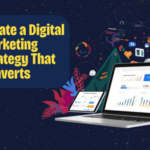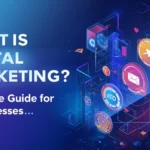Introduction:
Content marketing has become a crucial tactic for companies looking to engage with their target audience, establish trust, and promote long-term success in the current digital age when information is easily accessible. Content marketing has evolved into a vital tool for companies looking to differentiate themselves in a competitive market because of its capacity to attract interest, inform, amuse, and inspire. This blog article will examine the effectiveness of content marketing and the ways in which it can be used to promote customer loyalty and growth.
Understanding Content Marketing:
Content marketing can be defined as a strategic approach that involves creating and distributing valuable, relevant, and consistent content to attract and retain a clearly defined audience. It goes beyond traditional advertising by focusing on providing information and value to the audience rather than directly promoting a product or service. Content marketing aims to establish a relationship with customers based on trust and credibility, positioning the brand as a thought leader and problem solver.
Building Trust and Credibility:
One of the primary objectives of content marketing is to build trust and credibility with the target audience. By consistently delivering high-quality, informative, and relevant content, brands can position themselves as industry experts and valuable resources. Whether it’s through blog articles, videos, podcasts, or social media posts, content marketing allows businesses to showcase their expertise and establish a rapport with their audience. This trust and credibility translate into customer loyalty, repeat business, and positive word-of-mouth recommendations.
Enhancing Brand Awareness:
In a saturated digital landscape, getting noticed by potential customers can be challenging. Content marketing provides an effective solution by increasing brand awareness. By creating and sharing valuable content, businesses can expand their reach and attract new audiences. Through search engine optimization (SEO) techniques, well-crafted content can rank higher in search engine results, driving organic traffic to the brand’s website and increasing its visibility.
Driving Customer Engagement:
Engagement is a vital aspect of any successful marketing strategy, and content marketing excels in fostering meaningful interactions with customers. By encouraging comments, shares, and discussions around their content, brands can spark conversations and connect with their audience on a deeper level. Interactive content formats such as quizzes, polls, and contests further enhance engagement and provide valuable insights into customer preferences and needs.
Generating Leads and Conversions:
Content marketing can be a powerful lead-generation tool. By offering gated content, such as e-books, whitepapers, or webinars, businesses can capture valuable customer information and build their email lists. This allows for targeted communication and nurturing of leads over time, increasing the likelihood of conversion. Additionally, by strategically incorporating calls-to-action within content, brands can guide prospects through the sales funnel and drive conversions.
Adapting to Changing Consumer Behaviors:
Consumer behaviors and preferences continue to evolve, with an increasing demand for valuable and personalized content. Content marketing allows businesses to adapt to these changing trends and cater to their audience’s needs. By leveraging data analytics and insights, brands can gain a deeper understanding of their customer’s preferences and tailor their content accordingly. Personalized content fosters a stronger connection with the audience, leading to increased engagement and conversions.
Conclusion:
Content marketing has revolutionized the way businesses connect with their audience, fueling growth, and driving engagement. By creating valuable and relevant content, brands can build trust, enhance brand awareness, and establish themselves as thought leaders. The power of content marketing lies in its ability to provide value, foster meaningful interactions, and adapt to changing consumer behaviors. By incorporating content marketing into their overall marketing strategy, businesses can unlock a world of opportunities and connect with their target audience in a more authentic and impactful way.
 seolounge
seolounge




